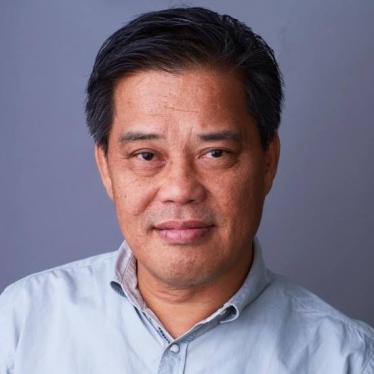Here’s a snapshot of the plight of tens of thousands of internally displaced people in the Philippine province of Maguindanao after an anti-insurgent military operation: women, children, and the elderly endure the heat in makeshift evacuation camps with inadequate food, medical care, and sporadic electricity supply. Many are sick; at least one child has died from dehydration. They sleep on cartons and blankets on the ground, exposed to the elements.
This is the ongoing humanitarian fallout from a security forces calamity that occurred three months ago. In the early morning of January 25, dozens of elite police commandos were deployed to Maguindanao to arrest terrorist suspects hiding among local insurgents from the Moro Islamic Liberation Front. That operation became a deadly debacle in which 44 of the commandos died, along with 10 insurgents and 7 civilians. The military responded to the incident with an “all-out-offensive” against insurgents. Politicians obsess over who should take responsibility for the police deaths while ignoring the toll that the ongoing military operation is having on the local people.
The Muslim residents of restive Mindanao, the southern Philippine island where Maguindanao is located, are no strangers to dislocation due to separatist armed conflict. But the scale of the impact of this operation on people is significant – even by local standards. The number of internally displaced people in Maguindanao has fallen to about 70,000 after peaking at more than 125,000 after January 25, but their situation remains dire. In a report issued this week, Protection Cluster, a United Nations-supported initiative of government and nongovernmental groups, indicates that the military offensive has resulted in numerous alleged serious human rights abuses, and that military operations in the Maguindanao areas are “the main driving factor of displacement in the armed conflict.”
The report also alleges that people’s homes were destroyed as a result of the offensive, that the military has created indefinite “no-go” areas and unnecessarily restricted people’s freedom of movement, and that it has harassed people who try and return home to secure livestock, crops, and their belongings. The report also alleges that soldiers are present in evacuation centers and relief distribution sites, are present in schools, and have even deployed children to gather intelligence about insurgent operations.
These allegations demand an urgent investigation. Philippine President Benigno Aquino needs to make clear to the armed forces that the liberty, safety, and livelihoods of the people of Maguindanao cannot be held hostage to anti-insurgent operations.









